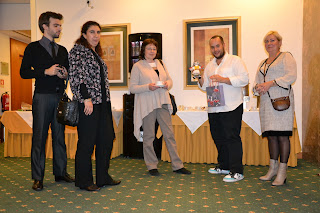CEOs, teachers, and leaders claim they want creative ideas to solve problems. But creative ideas are rejected all the time. A new study, which will be published in an upcoming issue of Psychological Science, a journal of the Association for Psychological Science, finds that people have a hidden bias against creativity. We claim to like creativity, but when we’re feeling uncertain and anxious—just the way you might feel when you’re trying to come up with a creative solution to a problem—we cannot recognize the creative ideas we so desire.

Generally, people think creativity is good. Before starting this study, the researchers checked that with a group of college students. “Overwhelmingly, the data showed that students had positive implicit and explicit associations with creativity,” says Jennifer Mueller of the University of Pennsylvania. She carried out the new study with Shimul Melwani of the University of Pennsylvania and Jack A. Goncalo of Cornell University.
But in experiments, people’s perceptions changed. In one experiment, the researchers made some people think about uncertainty—by telling them they might get some extra money after the study based on a random lottery. Other participants went into the study without that priming. They were all given a test that shows how they group concepts together. The people who had been made to think about uncertainty were more likely to subconsciously associate words like “creative,” “inventive,” and “original” with bad concepts like “hell,” “rotten,” and “poison.” In the other condition people associated creativity words with things like “rainbow,” “cake,” and “sunshine.”
“If I ask you right now to estimate whether or not you can generate a creative idea to solve a problem, you’re not going to know,” Mueller says. That feeling of uncertainty might be the root of the problem. When you’re trying to come up with a creative solution to a problem, you worry that you can’t come up with a good idea, that what you do come up with might not be practical, or that your idea might make you look stupid. “It feels so bad sometimes trying to be creative in a social context,” Mueller says.
This uncertainty may make leaders reject creative ideas. “But sometimes we need creative ideas. If you’re a company that makes radios and suddenly nobody’s buying them anymore, you don’t have a choice,” Mueller says—you have to come up with something new. Her research suggests that rather than focusing on the process of coming up with ideas, companies may need to pay more attention to what makes them reject creative ideas.
Source: Association for Psychological Science
 Creative Growth Art Center is an organization, located in California, that serves adult artists with developmental, mental and physical disabilities, providing a professional studio environment for artistic development, gallery exhibition and representation and a social atmosphere among peers.
Creative Growth Art Center is an organization, located in California, that serves adult artists with developmental, mental and physical disabilities, providing a professional studio environment for artistic development, gallery exhibition and representation and a social atmosphere among peers.





